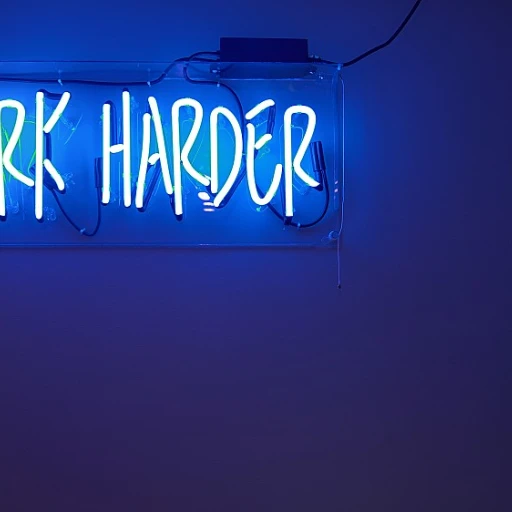
Understanding peo sales in the context of human resources information systems
What is a PEO and How Does It Fit into HRIS?
Professional employer organizations, or PEOs, are companies that provide comprehensive HR solutions for businesses of all sizes. In the United States, PEOs offer services like payroll management, employee benefits administration, compliance support, and risk management. When a business partners with a PEO, it enters into a co-employment relationship, allowing the PEO to handle many HR responsibilities while the company focuses on its core activities. This partnership is especially valuable for companies looking to streamline their HR processes and improve employee experiences.
The Role of Sales in PEO and HRIS Integration
PEO sales executives and consultants play a crucial role in helping businesses understand the value of integrating PEO services with their human resources information systems (HRIS). These sales representatives work closely with HR managers and business development teams to identify the right solutions for each company. By evaluating the specific needs of a business, a sales consultant can recommend a PEO company or service—like Paychex or other leading providers—that aligns with the organization’s goals and existing HRIS infrastructure.
- PEO sales representatives guide companies through the selection and implementation process.
- Sales executives ensure that the chosen PEO services integrate smoothly with HRIS platforms, supporting areas like payroll, applicant tracking, and employee benefits.
- Business development managers help companies understand how PEOs provide scalable solutions as the business grows or expands to new states.
Why Companies are Turning to PEO Sales for HRIS Transformation
As the HR landscape evolves, more companies are seeking ways to optimize their HR operations. Integrating PEO services with an HRIS offers a way to centralize employee data, automate payroll processes, and enhance compliance. This trend is particularly strong among small and mid-sized businesses that want access to robust HR solutions without the overhead of building large in-house teams. PEO companies, through their sales and executive teams, are helping organizations navigate these changes and unlock new efficiencies.
For a deeper look at how HR is changing and why companies are adopting new solutions, check out this article on navigating modern HR challenges.
Key benefits of integrating peo sales with your HRIS
Unlocking Efficiency and Value with PEO Sales Integration
Integrating peo sales into your human resources information system (HRIS) can be a game-changer for companies aiming to streamline HR operations and boost employee satisfaction. By leveraging the expertise of a professional employer organization (peo), businesses can access a suite of services that go beyond traditional HR functions. This integration is especially valuable for companies operating across multiple states in the United States, where compliance and payroll complexities can be overwhelming.
- Comprehensive Employee Benefits: Peos offer access to employee benefits packages that are often more competitive than what small or mid-sized companies could negotiate on their own. This includes health insurance, retirement plans, and wellness programs, making your business more attractive to top talent.
- Streamlined Payroll and Compliance: Payroll peo solutions simplify payroll processing and ensure compliance with state and federal regulations. This reduces administrative burdens and minimizes the risk of costly errors.
- Expert HR Support: With a peo company, you gain access to HR consultants, sales executives, and business development managers who provide guidance on everything from hiring to employee relations. This expertise is especially useful for organizations without a large internal HR team.
- Scalable Solutions for Growth: As your business expands, peo services can scale with you. Whether you are hiring in new states or adding new services, peos provide flexible solutions that adapt to your changing needs.
- Focus on Core Business: By outsourcing HR functions to a peo, your internal teams can focus on strategic initiatives and business development, rather than getting bogged down in administrative tasks.
Sales representatives and consultants from leading peo companies, such as Paychex, work closely with HR managers and executives to tailor solutions that fit your unique business requirements. This collaborative approach ensures that the integration of peo sales with your HRIS delivers measurable benefits, from improved employee engagement to more efficient payroll management.
For organizations looking to enhance their HR team and prepare for future success, integrating peo sales with your HRIS is a strategic move. Learn more about enhancing the HR team for future success and how these solutions can support your company’s growth and resilience.
Challenges faced during peo sales integration
Common Obstacles When Merging PEO Sales with HRIS
Integrating peo sales into your human resources information system can bring significant value, but it is not without its hurdles. Many companies encounter challenges that can slow down or complicate the process. Understanding these obstacles is key to a successful implementation.
- Data Compatibility and Migration
One of the first issues is aligning data formats between your existing HRIS and the peo company’s systems. Differences in payroll, employee records, and benefits data can create headaches for HR managers and sales executives. Ensuring accurate data transfer is crucial to avoid payroll errors and compliance risks. - Change Management and Employee Buy-In
Introducing new peo services often means changing established workflows. Employees, managers, and sales representatives may resist adapting to new platforms or processes. Effective communication and training are essential to help teams understand the benefits and reduce friction. - Vendor Coordination and Support
Working with multiple peo companies or a large provider like Paychex can lead to confusion over roles and responsibilities. Clear communication with your peo consultant or sales representative is necessary to ensure smooth collaboration and timely support. - Compliance Across States
For businesses operating in multiple states, keeping up with varying employment laws is a challenge. Peos provide expertise, but integrating their solutions with your HRIS requires careful attention to local compliance, especially when hiring or managing employee benefits across regions. - Customization and Scalability
Not all peo solutions fit every company’s needs. Some organizations find that the standard offerings from peo services do not align perfectly with their HRIS requirements. This can limit flexibility in business development and future growth.
Despite these challenges, many companies are finding innovative ways to overcome them, as seen in recent innovations at the HR technology conference. By learning from industry leaders and leveraging best practices, businesses can navigate the complexities of peo sales integration and unlock the full potential of their HRIS.
Best practices for a smooth peo sales implementation
Preparing Your HRIS for PEO Sales Integration
Before bringing in a professional employer organization (PEO) to work with your human resources information system (HRIS), it’s crucial to assess your company’s current processes and technology. Start by reviewing your existing HRIS capabilities and identifying gaps where PEO services can add value. Involve key stakeholders, such as your HR manager, payroll consultant, and business development executive, to ensure all perspectives are considered. This groundwork helps align your business goals with the solutions a PEO company can provide.
Collaboration Between Teams and Providers
Successful PEO sales integration relies on strong collaboration between your internal teams and the PEO representative. Open communication with your sales consultant or executive PEO contact is essential for a smooth transition. Make sure your HRIS manager and payroll team understand the new workflows, especially when it comes to employee benefits, payroll PEO processes, and compliance requirements across different states. Regular meetings with your PEO sales executive or sales representative can help address questions and keep the project on track.
Data Migration and System Compatibility
One of the biggest challenges in integrating PEO services is migrating employee and payroll data into the new system. Ensure your HRIS and the PEO platform are compatible, especially if you’re working with large providers like Paychex or other leading PEO companies in the United States. Test data transfers thoroughly before going live to avoid errors that could impact payroll or employee records. A dedicated consultant or business development manager from the PEO can support your team during this phase.
Employee Communication and Training
Employees need to understand how the new PEO solutions will affect their daily work, benefits, and payroll. Organize training sessions and provide clear documentation about changes to applicant tracking, benefits enrollment, and other HR processes. Highlight the advantages of working with a PEO, such as improved employee benefits and streamlined services, to encourage adoption and minimize resistance.
Continuous Monitoring and Feedback
After implementation, monitor the integration closely. Collect feedback from HR, payroll, and employees to identify any issues early. Your PEO company should offer ongoing support and be responsive to your needs as your business grows. Regular check-ins with your sales consultant or executive PEO contact will help you adapt the solutions as your company evolves.
- Review your HRIS and identify integration needs
- Foster collaboration between internal teams and PEO representatives
- Test data migration and ensure system compatibility
- Communicate changes clearly to employees
- Monitor progress and adjust as needed
Evaluating peo sales providers for your HRIS needs
What to Look for in a PEO Sales Provider
Choosing the right professional employer organization (PEO) for your human resources information system (HRIS) is a critical decision for any business. The market in the United States is filled with PEO companies offering a wide range of services, from payroll management to employee benefits administration. Here are some essential factors to consider when evaluating PEO sales providers for your company’s needs.
- Comprehensive Service Offerings: Not all PEOs provide the same solutions. Look for a provider that covers payroll, employee benefits, compliance, and applicant tracking. Leading companies like Paychex are known for their robust service portfolios, but smaller providers may offer more tailored solutions.
- Integration Capabilities: Ensure the PEO can integrate smoothly with your existing HRIS. Ask the sales executive or consultant about compatibility with your current systems, especially if you rely on specific business development or payroll tools.
- Experience and Reputation: A reputable PEO company will have a proven track record in your industry and state. Check for references, client testimonials, and third-party reviews to gauge their reliability and expertise.
- Transparent Pricing: Understand the pricing structure. Some PEOs offer bundled services, while others charge per employee or service. A clear proposal from the sales representative or manager will help you compare costs effectively.
- Compliance and Risk Management: The right PEO will help your business stay compliant with federal and state regulations. Ask about their experience in handling compliance issues and how their services can reduce your risk exposure.
- Support and Communication: Evaluate the level of support you’ll receive. Will you have a dedicated sales consultant or executive PEO contact? Reliable communication is essential for smooth ongoing operations.
Questions to Ask During the Evaluation Process
When meeting with a PEO sales representative or consultant, consider asking:
- How do your services integrate with our current HRIS and payroll systems?
- What employee benefits packages do you offer, and how do they compare to other PEO companies?
- Can you provide references from similar companies or industries?
- What is your process for onboarding new clients and employees?
- How do you handle compliance updates and regulatory changes in different states?
Comparing Top PEO Providers
| Provider | Key Services | Integration | Support |
|---|---|---|---|
| Paychex | Payroll, employee benefits, compliance, applicant tracking | Strong HRIS and payroll integration | Dedicated account manager |
| Other Leading PEOs | Varies: payroll, benefits, business development, HR consulting | Depends on provider | Sales executive or consultant support |
Ultimately, the best PEO for your company will align with your business goals, HRIS requirements, and employee needs. Take the time to evaluate each provider’s solutions, ask detailed questions, and involve your HR and executive teams in the decision-making process. This approach will help ensure a successful partnership and maximize the benefits of working with a PEO.
Future trends in peo sales and human resources information systems
Emerging Technologies Shaping PEO Sales and HRIS
Human resources information systems are rapidly evolving, and so are the ways professional employer organizations (PEOs) deliver their services. The integration of advanced technologies is transforming how companies approach employee benefits, payroll, and business development. Here are some trends that are likely to influence the future of PEO sales and HRIS:
- AI and Automation: Artificial intelligence is streamlining applicant tracking, payroll processing, and benefits administration. PEO companies are leveraging automation to reduce manual tasks, allowing HR managers and sales executives to focus on strategic initiatives.
- Data-Driven Decision Making: With more data available, PEOs provide actionable insights to businesses. This helps organizations make informed decisions about hiring, employee benefits, and compliance across different states.
- Cloud-Based Solutions: Cloud technology enables seamless integration between PEO services and HRIS platforms. Companies can access real-time information, making it easier for sales representatives and consultants to support clients remotely.
- Personalized Employee Experiences: As competition for talent grows, PEOs offer tailored solutions for employee engagement and development. This includes flexible benefits, wellness programs, and digital onboarding experiences.
- Compliance and Security: With regulations constantly changing in the United States, PEOs are investing in secure systems to protect sensitive employee data and ensure compliance for their clients.
What This Means for Businesses and PEO Providers
Companies seeking to partner with a PEO or integrate PEO sales into their HRIS should expect more advanced, user-friendly solutions. Sales consultants and managers will need to stay updated on technology trends to provide the best advice and support. PEOs offer a wide range of services, from payroll to employee benefits, and the ability to adapt to new technologies will set leading providers apart.
Looking ahead, the collaboration between PEOs and HRIS vendors will likely deepen, with an emphasis on delivering measurable business value. Whether you are a sales executive, HR manager, or business owner, understanding these trends can help you make informed decisions about your organization’s future workforce strategy.













